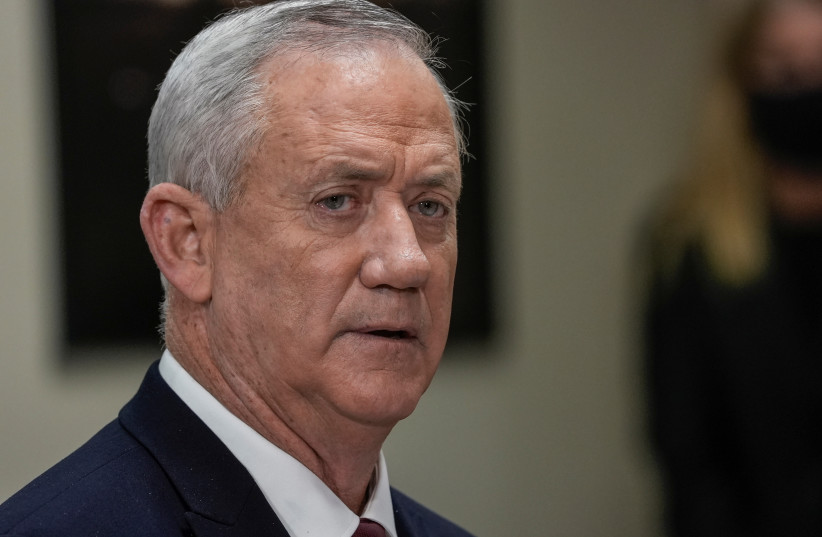Defense Minister Benny Gantz met Jordan’s King Abdullah II in Amman on Wednesday.
During the meeting, Gantz discussed “the strategic importance of strong and enduring relations between Israel and Jordan, which contribute to the security and prosperity of both nations,” read a statement released by his office.
Abdullah also reiterated the need to “maintain calm” in the West Bank and Gaza Strip as well as the need to “take the necessary measures to create the horizon needed to achieve a just and comprehensive peace on the basis of the two-state solution,” his office said.
The two also discussed issues of mutual concern, including ways to enhance security and stability in the region.
“Gantz thanked His Majesty for his leadership and for the kingdom’s critical role in maintaining regional peace and stability,” his office said, adding that he “welcomed the expansion of relations” between Amman and the current government led by Prime Minister Naftali Bennett. Gantz also committed to further developing security, economic and civilian exchanges.

The meeting was attended by Gantz’s chief of staff, Maayan Israeli; Policy, Political-Military Bureau Director Zohar Palti; and Military Secretary Yaki Dolf.
Abdullah was joined by Deputy Prime Minister and Minister of Foreign Affairs and Expatriates Ayman Safadi; Political Affairs Directorate Director Moath Al Zu’bi; and His Majesty’s Office Director Dr. Jafar Hassan.
The Amman meeting comes just one week after Gantz met with Palestinian Authority President Mahmoud Abbas in their second parley since August.
Gantz and Abdullah previously met ahead of the February 2020 election.
Weeks after the defense minister’s first meeting with the king, Gantz said that former prime minister and opposition leader Benjamin Netanyahu’s “presence interferes with the advancement of relations” between Jordan and Israel.
Bennett met with Abdullah in July. The king said soon afterward that he came out of meetings with Israelis and Palestinians feeling “very encouraged” and that the sides can “move forward and reset that relationship,” even if the current coalition has said it won’t make major moves on Israeli-Palestinian peace.
In an effort to shore up Israeli-Jordanian ties, Bennett’s government doubled the amount of water Israel sells to Jordan and increased its export level to Palestinians in the West Bank.
Amman and Jerusalem not only have robust security coordination and intelligence-sharing mechanisms regarding the common threats, but, according to foreign reports, Jordan has allowed Israeli jets to use its airspace for its “war between the wars” campaign in Syria.
In October, a German military photographer posted two pictures on social media of Jordanian fighter jets taking part in Israel’s Blue Flag aerial exercise, inadvertently revealing that the kingdom had participated in the drill.
Until the photos were posted, Jordan’s participation in the two-week-long biannual exercise had been kept an official secret.
The strategic depth provided by Jordan, which has not entered into any alliance with neighboring countries hostile to Israel, has kept Israel’s eastern and longest border the quietest and safest for decades.
Both countries understand that should security ties fail, not only would the king face instability at home, but the violence could spill over the border to Israel.
With a majority of Jordan’s citizens of Palestinian descent, Palestinian self-determination and maintaining the status quo of al-Aqsa Mosque in Jerusalem, which is administered by the Wakf Islamic religious trust, instituted by Jordan after Israel’s War of Independence, are key aspects of public discourse in Amman.
Lahav Harkov and Tovah Lazaroff contributed to this report.
